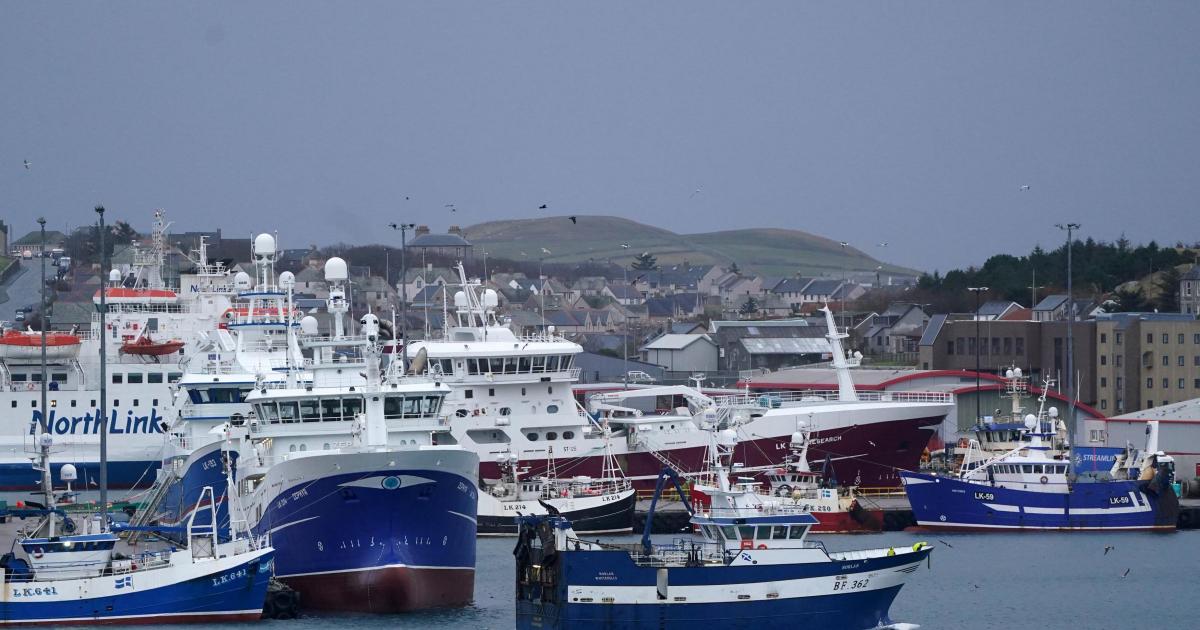With that declared at the outset, perhaps the great and the good of Scotland’s commentariat will understand if I struggle to muster up even two cheers for Keir Starmer’s “reset” of relations with the EU.
Don’t get me wrong. In many ways, the deal represents a tangible step forward, not least when it comes to access to passport e-gates and also the common-sense realignment with EU food standards – something which will protect consumers and allow us to export Scotland’s iconic food and drink products virtually unimpeded once again to our biggest single market.
READ MORE: Far-right group unveils racist banners supporting Reform in Holyrood by-election
Let’s also welcome – as far as it goes – the beginnings of a return to youth mobility. The generation which has lost most from Brexit is the youngest, so restoring in part their ability to live, work and study more freely across the EU is something to be genuinely pleased about. However, let’s not lose sight of a few things – particularly, how Labour’s rhetoric and short-term positioning have come at the expense of embedding further harms far into the future.
Just like the post-tariff trade deal with the US, this deal only undoes some of the economic harms previously inflicted. We should be in no doubt that it still represents a lesser position than that which we enjoyed pre-Brexit. We will all still be poorer with this outcome than we would otherwise have been had the Brexit calamity never happened.
And then there’s the political harms. For rather than confront Brexiteers with the utter implosion of their experiment once it was translated from the pages of the right-wing press and into the real world, Starmer’s political “pitch rolling” of recent months – like last week’s disgraceful comments about “an island of strangers” – has simply served to put further fuel in the tank of the Faragists.
And then there’s fishing. As an MP representing a constituency where the seafood sector remains of totemic significance, it’s clear once again that our fishing communities – in being used as the collateral which got this deal over the line – have been treated as expendable by a UK Government.
No-one should be surprised at this. Our fishing communities were shafted on the way into Europe in the 1970s; they were shafted in the EU by successive UK governments that failed to fight their corner; they were shafted by snake-oil selling Brexiteer politicians on the way out of the EU. Now, they are being shafted yet again with the terms of access to fishing grounds now fixed for the next 12 years at least.
In or out of the EU, there’s a trade-off between access to waters and access to markets, which always made the promises from the likes of Michael Gove of unlimited riches from “taking back control” fraudulent – especially when it involved a form of Brexit which reduced access to the legal migrant labour that the catching and processing industry relies upon, at the same time as tangling exports in red tape.
So how do smaller states than the UK manage to get a better deal for their fishing industries than we do?
SIMPLE. They value their coastal communities in a way that UK governments never do, and then they negotiate and build alliances with other independent EU states to achieve the outcomes that are as far as possible in their own national interest.
So long as our fishing communities are represented in negotiations by a “couldn’t care less” UK Government rather than a genuinely accountable sovereign Scottish Government with real skin in the game, then however much “love bombing” goes on from UK politicians beforehand, Scottish fishing communities will always end up being used as a negotiating chip by Westminster for something else that it values more highly in the “British interest”.
The SNP can claim the virtue of consistency on these matters. Which is a great deal more than can be said for the Tories. And let’s face it, there has been no more pathetic sight over the past few days than watching Tory “remainers” who immediately rowed into line as staunch Brexiteers now criticising Starmer’s deal.
Lest we forget, this was the shower which railroaded through Brexit in the midst of a pandemic crisis; which unlawfully prorogued parliament, and which enabled and applauded newspaper headlines about “crushing the saboteurs” and “enemies of the people” – all while lecturing Scottish independence supporters about “division” in politics and the need to get on with the “day job” that they were clearly ignoring themselves in the UK Government they were responsible for running.
I’d thought that version of Toryism had reached its lowest electoral point when Ruth Davidson led her regional franchise to their lowest share of the popular vote since the Great Reform Act of 1832 at the 2019 European elections. It’s entirely possible that next year’s Holyrood elections could now see them slip into fourth or even fifth place.
But back to the big picture. Two things should now be abundantly clear to all Scottish voters.
Firstly, Scotland always was and always will be an afterthought to Unionist governments of any stripe. And secondly, there is no deal for Scotland that is as good as being an independent member of the European Union, able to stand up for our industries in a way which Westminster never has and never will have any interest in doing.

